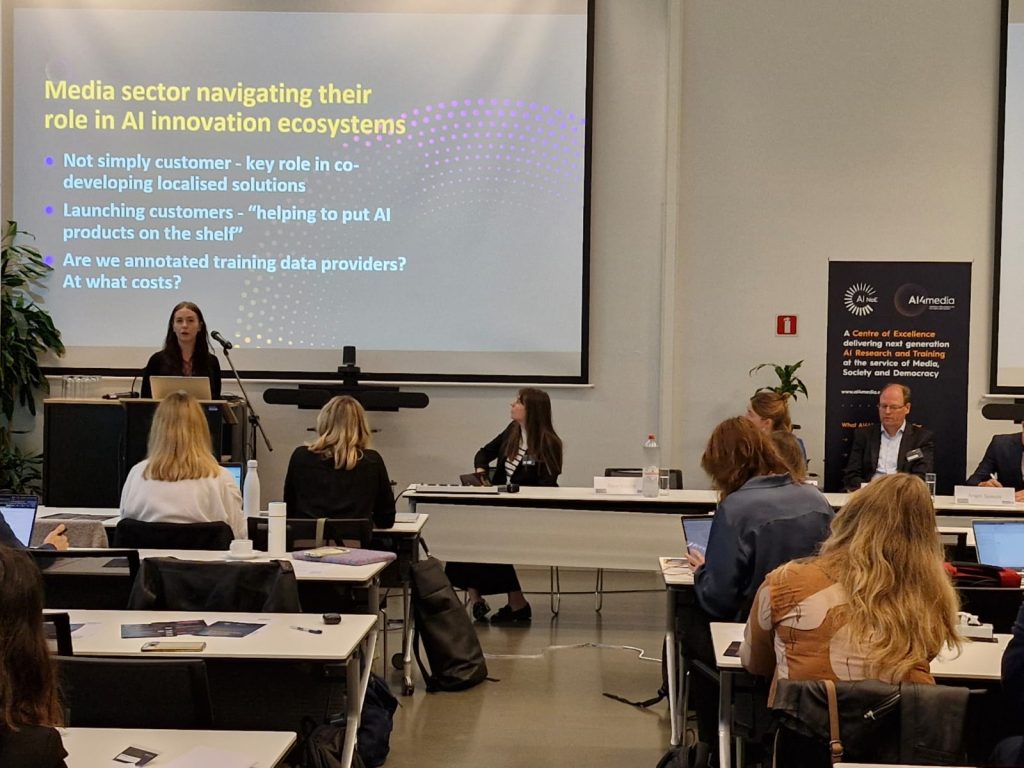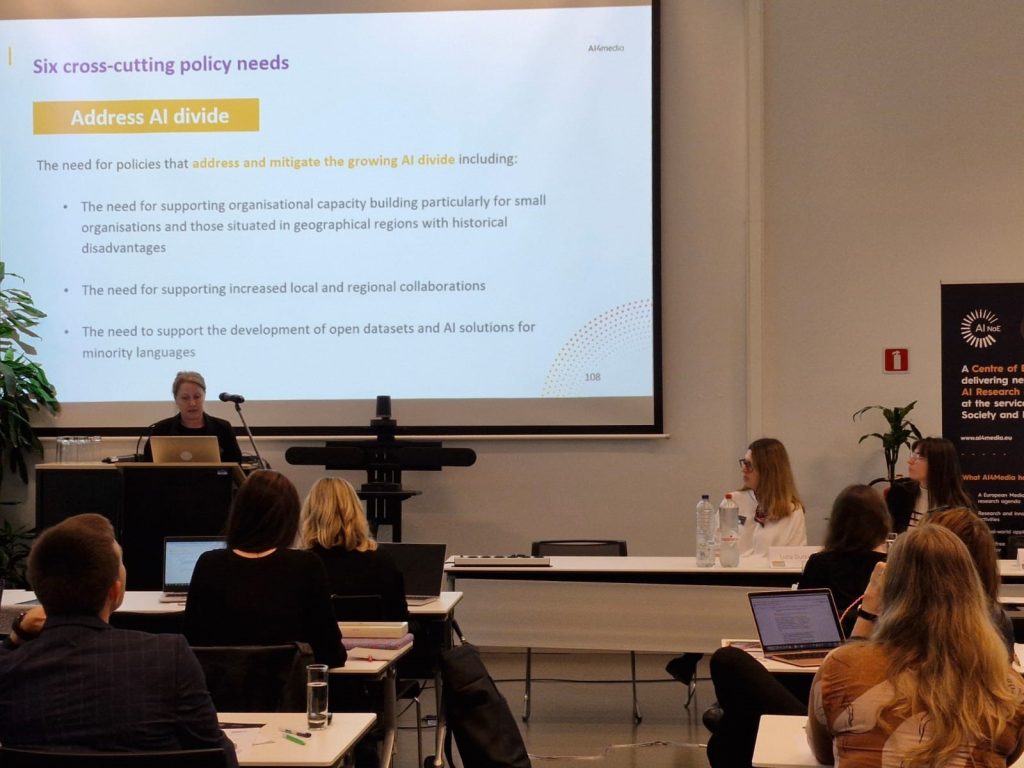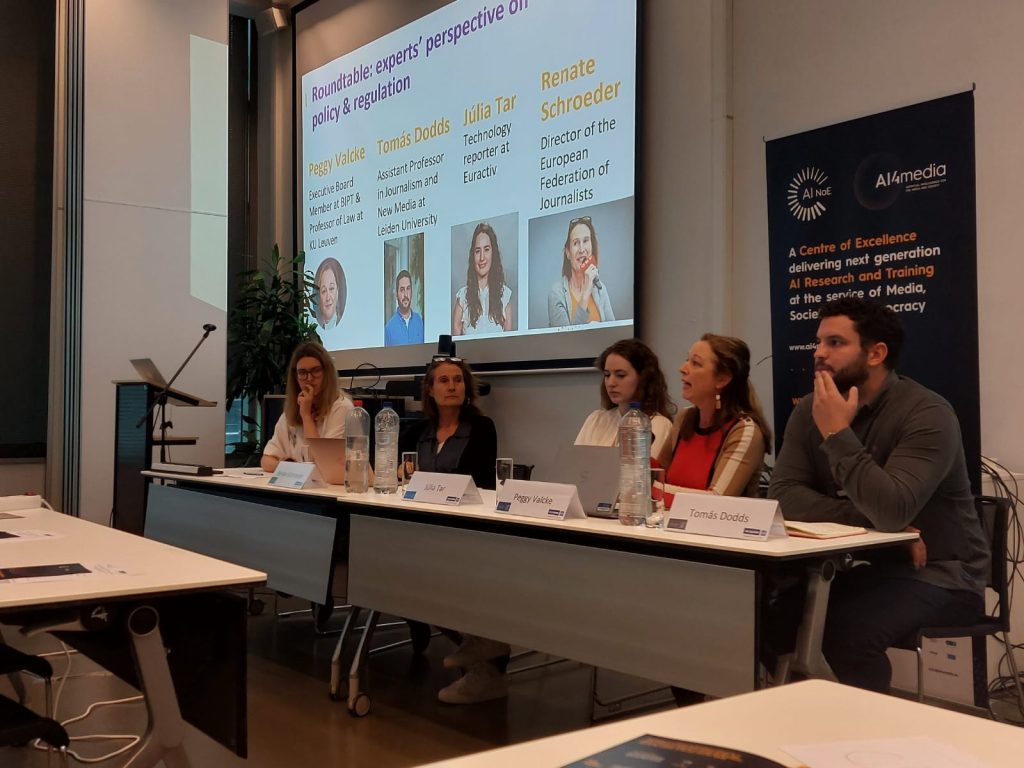Over the past four years, AI4Media has made significant strides in harnessing the power of artificial intelligence to address key societal challenges and enhance various aspects of public life. This comprehensive effort has resulted in notable advancements in combating disinformation, improving public understanding of AI, and developing tools that support democratic processes and personal privacy. These are some of the key achievements that highlight AI4Media’s impact on citizens and society:
“Artificial Intelligence: Possibilities and Challenges” Exhibition
AI4Media co-organised a temporary museum exhibition titled “Artificial Intelligence: Possibilities and Challenges” at the NOESIS Science Center & Technology Museum in Thessaloniki, open from April 2024. This exhibition targeted school children and the general public, aiming to demystify AI by exploring topics such as generative AI, AI bias, disinformation, and sustainability. Featuring numerous interactive elements, the exhibition provided an engaging and educational experience, helping to foster a better understanding of AI’s potential and challenges among visitors.
Advancing the Fight Against Disinformation
As part of their use case within AI4Media, Germany’s international broadcaster Deutsche Welle (DW) and the Athens Technology Centre (ATC) developed a demonstrator for testing new AI services in a media business environment. Integrated into the “lab version” of the Truly Media platform, these services included verification tools for video, audio, and text content, such as deepfake analysis and text verification. The services were tested against business requirements and contributed significantly to improving Trustworthy AI and AI compliance in media tools.
Successful Use of Deepfake Detection Service
In collaboration with the Horizon Europe project vera.ai, AI4Media developed the RINE method for synthetic image detection, now integrated into the Fake News Debunker browser plugin. This tool, used by over 130,000 journalists and fact-checkers globally, has been pivotal in flagging AI-generated images in significant events, such as the European Elections, the War in Ukraine, and the Israel-Palestine conflict. The AFP (Agence France-Presse) successfully used this service to debunk disinformation during these high-profile events.
Political Barometer: Predicting EU Election Outcomes in Greece
Developed by the Artificial Intelligence and Information Analysis Laboratory of the Department of Informatics at Aristotle University of Thessaloniki (AUTH), the Political Barometer software performs political opinion polling and election result prediction using sentiment analysis of political tweets. This innovative tool, which analyses daily tweets about political parties and integrates past election results and classical poll data, demonstrated high accuracy in predicting outcomes for the Greek parliamentary elections and the European elections of June 2024.
YDSYO App for Assessing Social Media Content Impact
The YDSYO mobile app prototype, developed under AI4Media, uses AI to provide feedback on the potential real-life effects of sharing photographs on social media. It analyses visual content from the user’s smartphone, aggregates the results, and rates these profiles in situations like job searches, loan applications, or housing searches. The app offers users control mechanisms, such as masking or deleting photos, to manage their online presence effectively. All processing is done locally on the device, ensuring user privacy and control over data.
Analysing European Local News with NLP Tools
In the AI4Media project, the Idiap Research Institute in Switzerland developed an analytical framework for local news using open-source natural language processing (NLP) tools. This framework was applied to analyse news sources at both the European and hyper-local levels. By examining local media, which plays a crucial role in maintaining community ties and addressing the crisis of trust in national media, the project highlighted the importance of local journalism in the democratic process.
Through these initiatives, AI4Media has significantly contributed to societal advancements by enhancing public understanding of AI, combating disinformation, improving political discourse analysis, and providing tools for better social media content management. These achievements underscore the project’s commitment to leveraging AI for the public good, ensuring that technological advancements benefit all segments of society.




